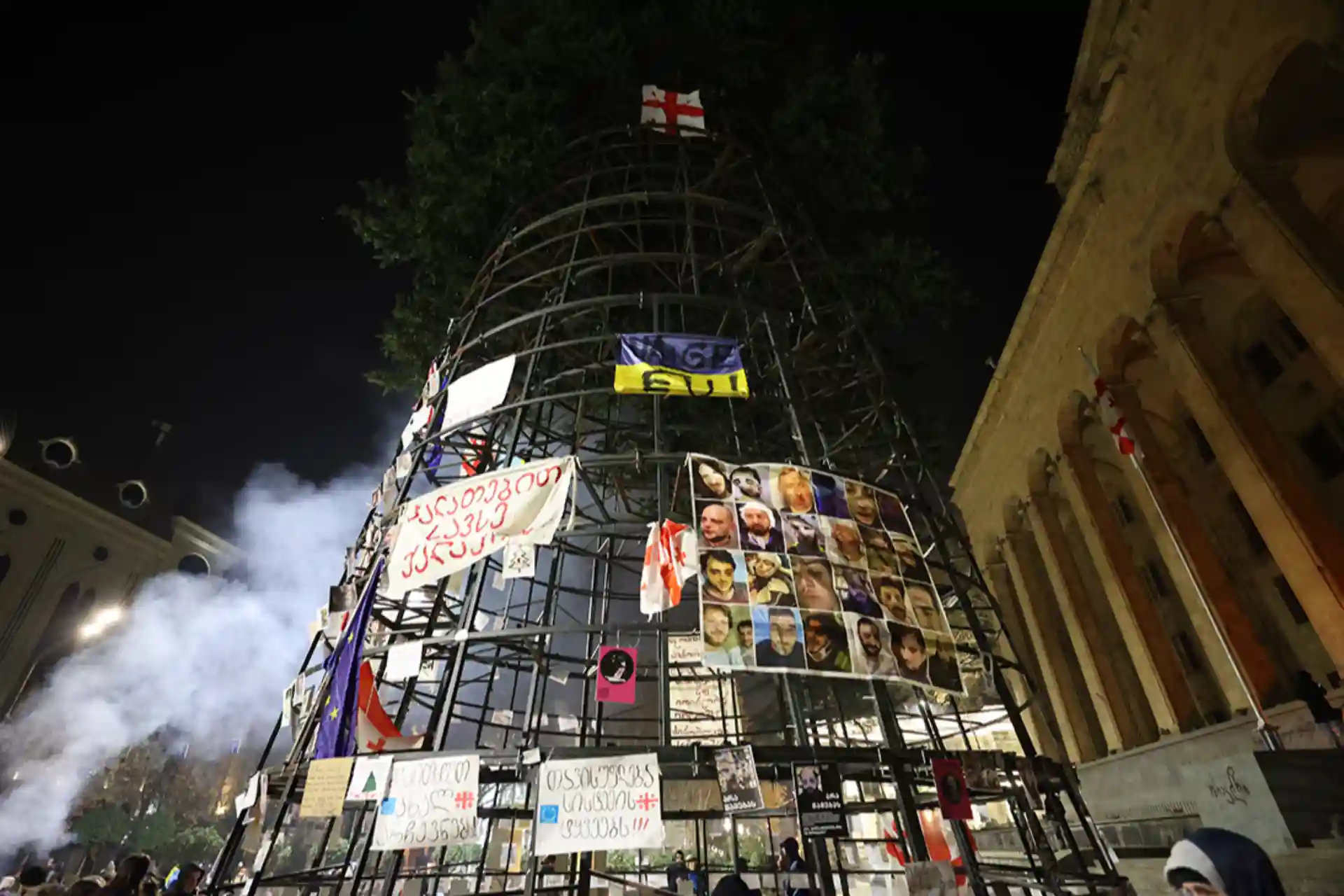09.12.2024 12:44
403
Pro-EU protests in Georgia have been going on for 11 days
Protests continue in Georgia following Prime Minister Irakli Kobakhidze's decision not to put the start of negotiations with the European Union on the agenda until the end of 2028. During the demonstrations, 150 policemen were injured and more than 400 people were arrested.
In addition to the demonstrations that continued on the 11th day in Batumi, thousands of people gathered in front of the parliament building in the capital Tbilisi at night and reacted to the government's decision again.
Demonstrators hung photos of journalists, artists, politicians and protesters injured in the demonstration on the trunk of a Christmas tree being installed by the municipality as part of the New Year holiday.
The Deputy Minister of Internal Affairs of Georgia, Aleksandre Darakhvelidze, made a statement at a press conference about those arrested during the ongoing protests in Tbilisi.
Darakhvelidze, who pointed out that since November 28, violent actions against the parliament building and the police have been carried out, said that 150 policemen were injured in the incidents.
It was also noted that some journalists were injured, city infrastructure was damaged and more than 400 people were arrested during the ongoing protests.
Protesters in Tbilisi dispersed around 03:00.
The government's decision to stop negotiations with the European Union
The European Parliament has called for a new parliamentary election in Georgia, which took place on October 26, and the opposition and EU supporters took to the streets and organized demonstrations.
After that, in a statement on November 28, Prime Minister Kobakhidze announced his decision not to start negotiations with the European Union due to the interference of some European politicians in Georgia's internal affairs.
Kobakhidze said that he will continue his country's efforts to join the European Union in 2030.
Reaction to Georgia's decision
The US State Department has announced the suspension of strategic relations with Georgia, which has suspended negotiations with the European Union.
The new High Representative of the European Union for Foreign Affairs and Security Policy, Kaja Kallas, announced that she supports the anti-government protesters.
The Baltic states also announced that they would ban some high-ranking representatives of the Georgian government from entering the country.
Ukrainian President Volodymyr Zelensky signed a decree imposing sanctions on Georgian Prime Minister Kobakhidze and some government officials.
The US State Department also noted that additional sanctions may be imposed on Georgia, where anti-government protests continue.

